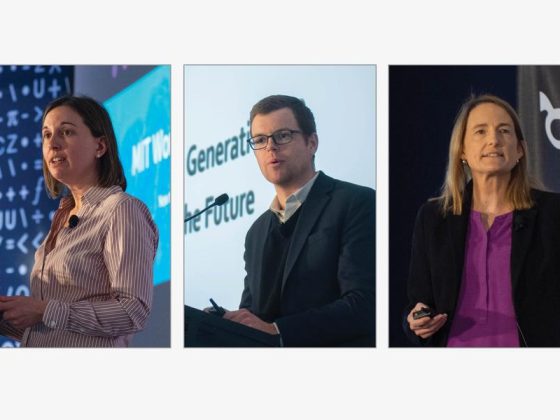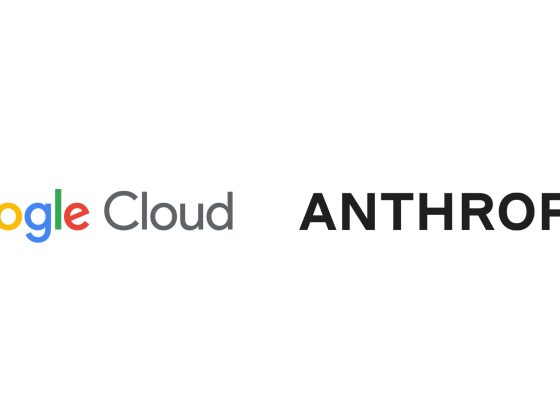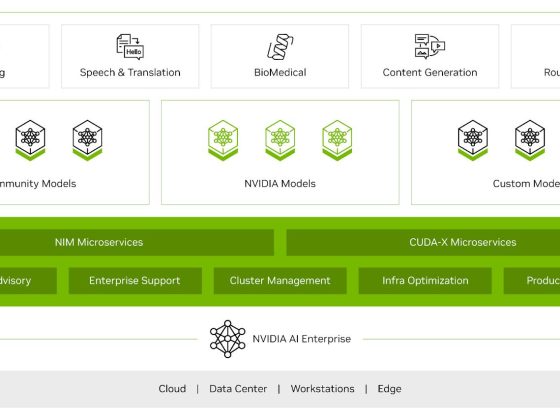Artificial intelligence offers great promise, but we must ensure it does not deepen inequalities.
Today we are setting out our vision for AI@Cam, a new flagship mission at the University of Cambridge.
Artificial intelligence today is ubiquitous.
It is deployed in health to map the consequences of genetic variation in cancer. It is helping researchers find new pulsars and planets. It is providing faster approaches for solving complex equations to support climate science.
From our partners:
Cambridge has already made important contributions across these fields. Shankar Balasubramanian and David Klenerman revolutionised the field of genomics with their rapid sequencing technology. Jocelyn Bell Burnell and Tony Hewish discovered a new class of astronomical object when they observed the first pulsar. Maurice Wilkes and David Wheeler showed the power of technology for problem solving, being the first to solve a differential equation with a digital computer. These advances in science and technology created new understandings of the world, and in turn provided new tools that pushed forward the frontiers of science.
The pervasiveness of AI sets it apart from other areas of technology innovation, such as nanotechnologies, graphene, or fusion. AI is both a rapidly-advancing research domain and an accelerator of innovation in other disciplines and industry sectors.
It is also a technology that is intertwined with diverse societal interests. Its impact is felt across society.
AI: a global panacea?
In practice, translation of AI technology into practical benefit is not simple. Moreover, a growing body of evidence shows that risks and benefits from AI innovations are unevenly distributed across society.
When carelessly deployed, AI risks exacerbating existing social and economic inequalities.
Innovating to serve science and society requires a pipeline of interventions. As well as advances in the technical capabilities of AI technologies, engineering knowhow is required to safely deploy and monitor those solutions in practice. Regulatory frameworks need to adapt to ensure trustworthy use of these technologies. Aligning technology development with public interests demands effective stakeholder engagement to bring diverse voices and expertise into technology design.
Building this pipeline will take coordination across research, engineering, policy and practice. It also requires action to address the digital divides that influence who benefits from AI advances. These include digital divides within the socioeconomic strata that need to be overcome – AI must not exacerbate existing equalities or create new ones. In addressing these challenges, we can be hindered by divides that exist between traditional academic disciplines. We need to develop common understanding of the problems and a shared knowledge of possible solutions.
Making AI equitable
This vision will be achieved through leveraging the University’s vibrant interdisciplinary research community. AI@Cam will form partnerships between researchers, practitioners, and affected communities that embed equity and inclusion. It will develop new platforms for innovation and knowledge transfer. It will deliver innovative interdisciplinary teaching and learning for students, researchers, and professionals. It will build strong connections between the University and national AI priorities.
The University operates as both an engine of AI-enabled innovation and steward of those innovations.
AI is not a universal remedy. It is a set of tools, techniques and practices that correctly deployed can be leveraged to deliver societal benefit and mitigate social harm.
In that sense AI@Cam’s mission is close in spirit to that of Panacea’s elder sister Hygeia. It is focussed on building and maintaining the hygiene of a robust and equitable AI research ecosystem.
Our review, published today, signals the University’s commitment to this new wave of AI-enabled research and innovation. We look forward to playing an active role in sharing the benefits of that technology across society.
By: Professor Neil Lawrence and Jess Montgomery
Source: University of Cambridge
For enquiries, product placements, sponsorships, and collaborations, connect with us at [email protected]. We'd love to hear from you!
Our humans need coffee too! Your support is highly appreciated, thank you!








